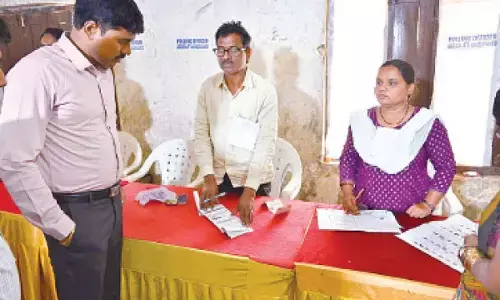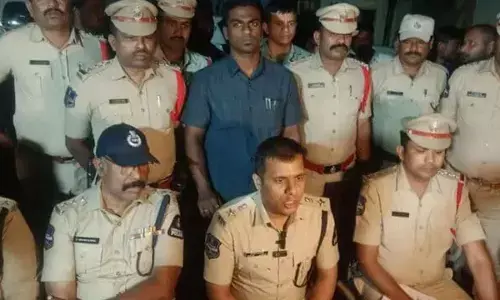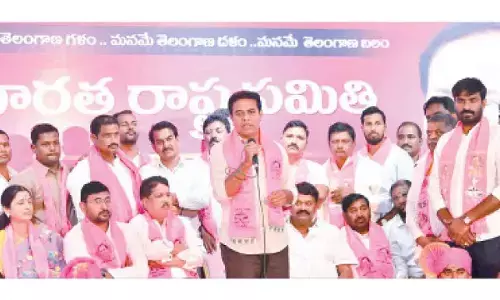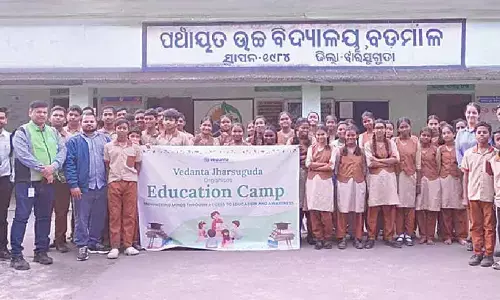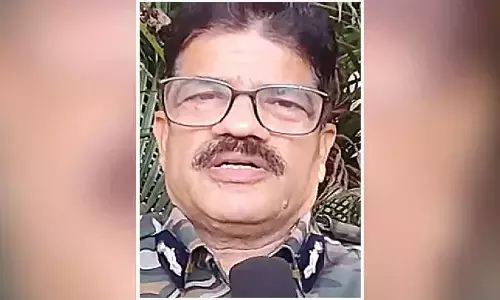Saga of love, adventure and happiness
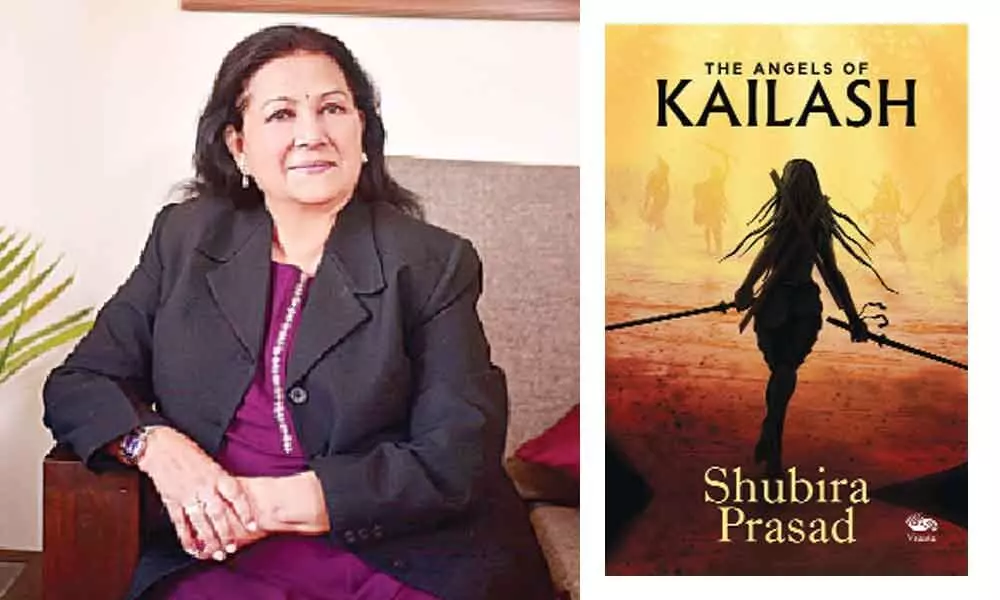
Shubira Prasad
Shubira Prasad, an educationist, writer, and astrologer finds her interest in writing. Her new book ‘Angels of Kailash’ is a saga of love, adventure, heartbreaks, fierce battles, despair, power, and happiness
Shubira Prasad, an educationist, writer, and an astrologer, graduate with post-graduation in English literature. She has been practicing astrology for more than twenty years now. Her interest in the supernatural and the Indian epics led her to writing.
The Kumbh Conspiracy is the final book of the trilogy of the war between the human beings and demons. This is a saga of love, adventure, heartbreaks, fierce battles, despair, power, and happiness. She shares her opinions with The Hans India regarding her journey into writing. Lets have a look into it.
Why did you decide to use Ramayana as your starting point for this trilogy?
The premise in my mind was to write a book about demons versus human beings. I wanted to write about a few humans having powers to destroy demons. I wanted my humans to be as near to humanity as possible, along with their powers. I researched for all kinds of demons all over the world. After some tough research I found the maximum number of demons in the Ramayan and the Durga Saptshati.
I could naturally align myself to these characters. I could understand the powerful divine weapons and was familiar with the deities too. I began with Ramayan because it had the maximum number of demons and even now people understand Ramayan and have full faith in it.
The new one out in the series is called Angels of Kailash, the previous one was called Demons of Jaitraya, what is the final one called and what is the background behind selecting each of these titles for the trilogy?
I began my story from the time of Ramayan. Jaitraya is a synonym for Bhagwan Ram. Bhagwan Ram fought with demons throughout his life. His representatives on Earth are still fighting the demons. Hence the first title 'The demons of Jaitraya.' The second book of the trilogy begins after the demons destroy the Gurukul and kill almost everybody there including their Guruji. The protagonists somehow escape and take shelter at the foot of Mount Kailash. Here they nurse themselves and about twenty odd inhabitants of the Gurukul.
The rest of the book is about how they take revenge, who helps them and how they destroy many more demons. Each chapter is about a distinct demon(s) and how it is annihilated. Since the first place they escaped to was Mount Kailash, I named it 'The Angels of Kailash.' The third book is 'The Kumbh Conspiracy.' The last Kumbh Mela was held very recently at Prayagraj. That prompted me to integrate some happenings in my book.
The protagonists are now married and they have children too. Much water or rather blood has flown under the bridge. They take their children to the Kumbh mela in Prayagraj. The book begins from there and things happen. Hence the name "the Kumbh Conspiracy."
How difficult or easy is it to maintain continuity while writing a trilogy? What are the few things that you have to include in your writing discipline to ensure the same?
It is not that you decide to write a trilogy. You start a novel. You decide its beginning and its end. You have the option to write a single thick book. The other option is to release it in parts. That is how my book became a trilogy. No specific effort was required to write the trilogy.
If you put your mind and soul to write something, you just go ahead and do it. As you travel on your journey, doors keep opening, on the condition that you keep on travelling. When I began my writing, I had a fairly good idea of what I wanted to write about, but I had absolutely no idea that I was going to encounter hornets' nests. There were demons and more demons. I had to destroy most of them through my protagonists. Most of my first book
'The Demons of Jaitraya' went into describing the Gurukul, its curriculum, its people, their powers, the protagonists, the demons, how they came out in this century and other centuries too. A major chunk went into these descriptions. It was only later that some actions were attributed to the protagonists. The real actions begin in the second book, that is 'The Angels of Kailash.'
I have been teaching for many years. I have enough experience of being disciplined and imparting discipline too. Though this was a different kind of discipline, mental as well as physical. I had to discover my most productive writing times, which were in the afternoon and late nights. Once I got my timing right, writing happened smoothly.
You have been an academician all your life, what has been your takeaway from your profession as a teacher?
Being a teacher was not my first choice. I got married to an Air Force officer at a relatively younger age. Most of my husband's postings were at remote Air Force stations as those were the formative years of the Indian Air Force. We set up smaller schools to provide basic education to the children of the camp and the villages nearby. Sometimes we taught the parents in the villages too.
The very fact that you are responsible for shaping a child's life is such a great accountability. I loved teaching, but only teaching, not the paraphernalia which you get bogged down with. Being a teacher has taught me to understand a student's mental aptitude, then explain things to him/her. Probably this is why the language in my books is so clear and lucid.
Your books have an element of youth in them with all the warriors depicted as young students, how much of your long association with the youth trickled into the story?
When you begin writing a trilogy, a certain time span has to be there. My story begins with the warriors discovering and remembering their powers. They train, become mature, kill demons, fall in love, some of them get jilted too. There is an awareness of their responsibilities, an awareness of the bigger picture in life. My association with the youth may have trickled in the stories, but it was more of my imagination and my leaning towards mythology and fantasy that have come to the fore.
You are a wife of an Air Force officer which meant moving cities with postings, exploring new cities, new cultures, and people, how do you see your writing getting influenced by this?
Air Force has influenced me to a very large degree. I have enjoyed every moment of my life in the Air Force. I have seen almost all places in India and imbibed the culture of those places too. His first posting was in J&K. What a different culture from North India. Vaishnav Devi, Katra were just there. Kashmiri food is so delicious. And so, it went on – North India, South India, East India, Western India. What can one say about India, so different, yet same. My writing has certainly taken the help of these places in their descriptions.





